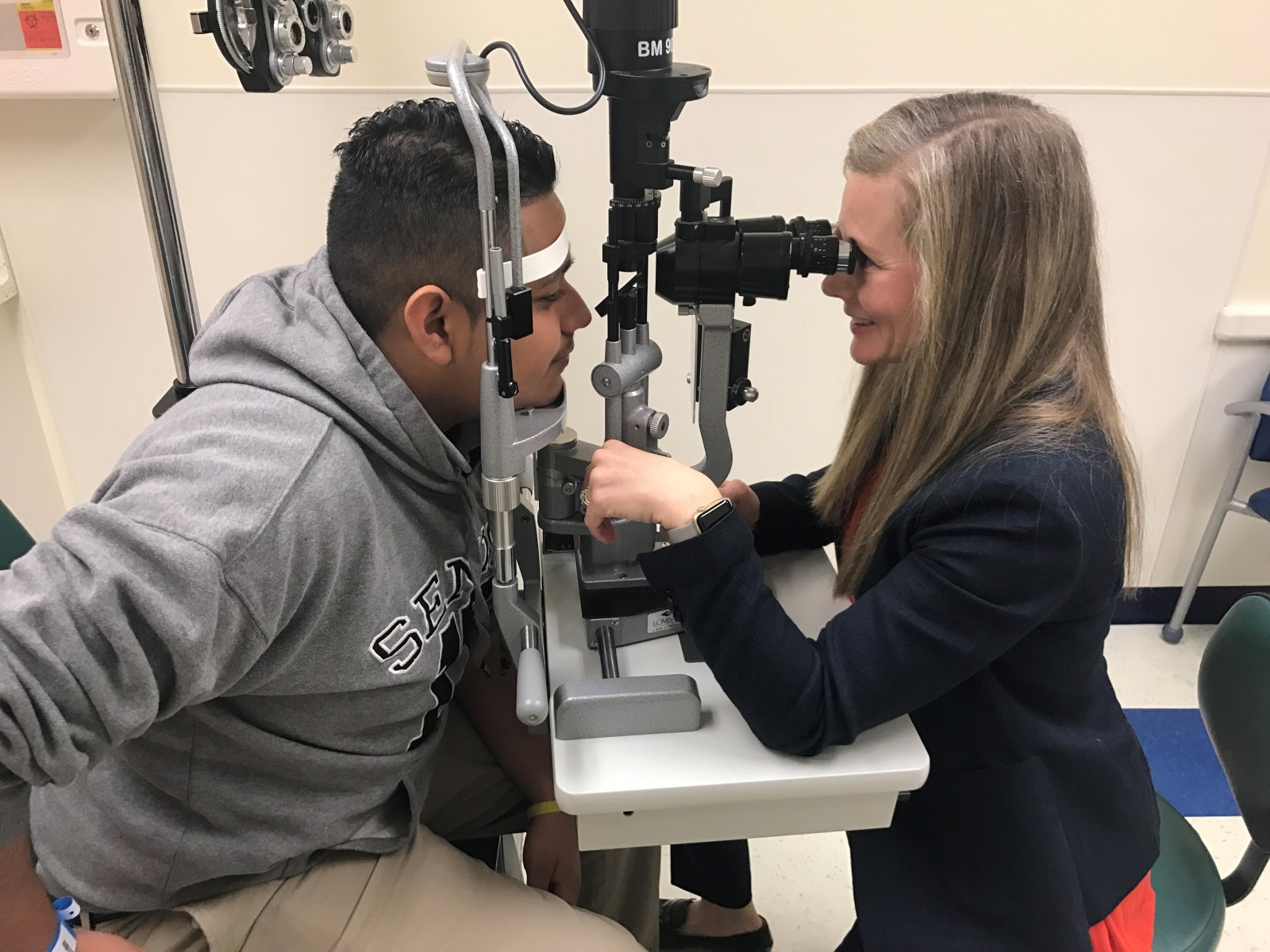Kansas City Business Journal: Children's Mercy completes first corneal cross-linking surgeries
Hospital is leading the way in the nation with a recently approved procedure

A newly approved technology could prevent young patients from needing corneal transplants down the line. Children's Mercy recently completed its first two corneal cross-linking procedures, a noninvasive surgery that gained Food and Drug Administration approval in 2016.
Dr. Erin Stahl, a pediatric ophthalmologist with Children's Mercy, said the procedure could provide an alternative for patients with keratoconus, whose cornea thin over time.
"It's a big deal," she said. "If we can avoid (transplants) by having this procedure, which is really simple, it can make a huge difference in people's lives."
Many patients are diagnosed with keratoconus around puberty, as the cornea starts to thin, steepen and eventually scar. Previously, the only treatment was to give them stronger prescription glasses and contacts, until a transplant was inevitable.
"You're really stabilizing the condition and preventing future consequences," Dr. Stahl said.
Edgar Jasso-Cruz, an 18-year-old from Kansas City, was one of Stahl's first patients. Diagnosed with keratoconus at age 11 or 12, he had the surgery three weeks ago.
"I was getting tired of changing lenses every month or so," he said.
The procedure, while not pleasant, is relatively simple.
"It's like a long dental procedure you'd like to be done with as soon as possible," Stahl said.
She added the surgery mimics natural processes to strengthen the cornea.
"The natural riboflavin in tears combined with UV from sunlight causes this process to happen over time," Stahl said. "We're really just accelerating it."
The entire procedure takes about an hour, starting with numbing the eye and removing the epithelium, the front surface of the cornea. The cornea is then saturated with riboflavin, which combined with UV light, stiffens the cornea by connecting its layers. In 48 hours, the epithelium is healed and the patient's vision is stabilized.
Though most patients are awake for the procedure, Children's Mercy can treat younger patients under anesthesia, who might not tolerate an hour of eye drops. This is key, Stahl said, as patients who are diagnosed younger tend to progress faster than adults.
"If you can identify them as early as possible and treat them, hopefully they'll just go on to have normal visual development," she said.
Read the article via the Kansas City Business Journal.
Learn more about Corneal Cross Linking at Children's Mercy.
